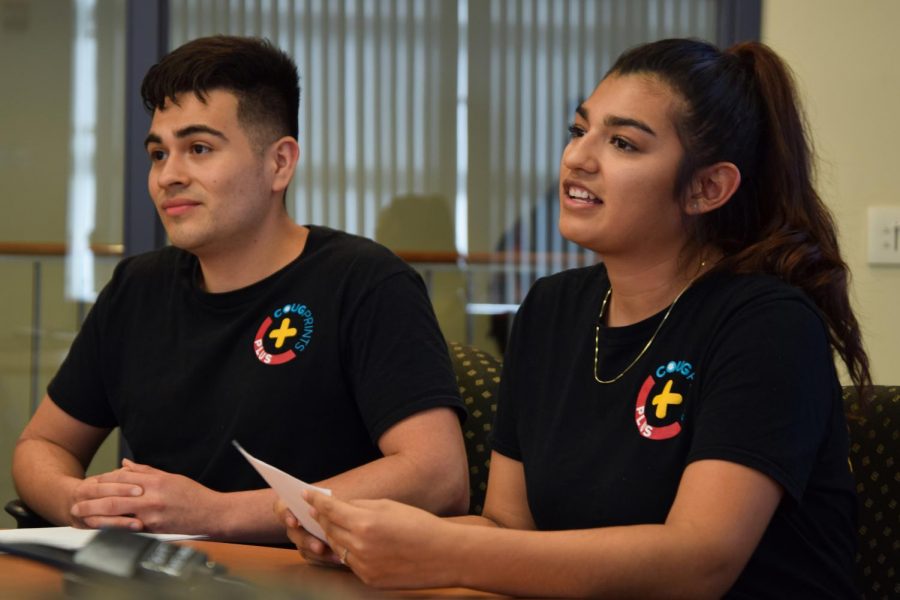Groups request funding from tech fees
Students ask for better printer accessibility; library representative wants recording studio
JOSEPH GARDNER | THE DAILY EVERGREEN
Tony Verdusco, left, a senior representing CougPrints+ , and senior Francis Muniz-Naba ask for funding for CougPrints during the student technology fees hearing on Wednesday in the Smith Center.
March 21, 2019
Five more groups requested money from the WSU Technology Fee Committee for possible funding.
CougPrints was the first group to request money from the committee to fund printing for students.
“Being a student, nothing runs smoothly or perfectly,” said Tony Verdusco, a senior humanities major and CougPrints Plus representative.
He said having accessibility to print in various locations on campus in color or black and white is very convenient and necessary for students.
Jason Anderson, who runs the Libraries’ Dimension Lab, requested funding to build a recording studio. The studio would be put into an existing space with new technology.
Hannah Erikson, WSU music student, said there is some of this technology in the piano lab in the Kimbrough Music Building, but this lab isn’t easy to access and has restrictive hours.
“We need an isolated sound environment, where we can make recordings,” Erikson said.
Jeff Braund, another music student at WSU, said this studio would be in a central location on campus, ADA-accessible and it would encourage cross-disciplinary projects among students.
Anderson said any costs over $10,000 would be absorbed by the library.
Daylan Kelting, president of Palouse Robosub, requested funding for a “swarm of autonomous subs.”
He said they have received funding from the Navy in the past, but the Navy cannot provide funding until two years from now.
“We do predict that this project will have a self-sustaining nature,” said Pascal Spino, vice president of Robosub.
He said they hoped this project would increase membership and encourage funding from corporate sponsorships.
Kelting said the club is able to provide more real world experiences engineering classes cannot provide.
The last two proposals were presented by Jon Manwaring, the assistant director at Academic Media Services.
He first requested funding for room 32 in the basement of Sloan Hall, the engineering building. He said that this room is underutilized and could be used for students to work on projects together and create an informal learning type of room.
His second proposal was for the Academic Outreach and Innovation (AOI) creative corridor.
“The creative corridor is a group of faculty and staff in administrative areas that have collaborated together for the last couple of years,” Manwaring said. “To bring a connectedness to the technology training and events that are available across the campus.”
He requested funding for new equipment for hands-on arts projects and collaborative projects from different departments.
The WSU Technology Fee Committee will meet tomorrow to deliberate allocating funds to groups who presented over the past two days.


















